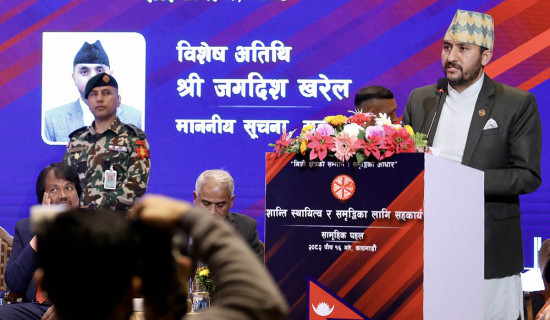- Thursday, 1 January 2026
Learning In 21st Century
Khem Raj Niraula
Many researches have shown that human beings have an inborn curiosity to learn right from the start. The process of learning never ends. The more we learn, the more inquisitive we grow. This desire to learn, explore and understand persists with them throughout their lives. That should be good news for teachers.
For junior level teachers, it means their job is twofold: have a solid grip on what you want to teach and find ways of engaging students in the learning process. However, reality is not like that. Traditional formal education has always laid more emphasis on content based knowledge. We know what to teach but not how the students will grasp the content delivered. The gap persists and grows, as students progress grade levels. This gap can be broadly understood as 'skill' gap. What is the role of the teachers in helping students with the skills to learn? What is the missing piece in this mystery?
The building blocks of learning that encourage creativity and curiosity in the foundation years need our focused attention. When we talk about 21st century skills, learners' adaptability, and developing motivation to become successful learners, we have to look closely at what we can do to develop the skills they need on this journey. Global skills as we call them now, require a broad framework of consistent tools that can be used at every stage in every classroom.
The skills we develop in our students are the precursor to knowledge, not the other way round. When we look closely at the gap between skills and knowledge, the role of a 21st century teacher becomes obvious: students require communicative and collaborative classes for them to learn how to extract information, draw meaning from it and produce a personal response. Without the necessary skills to accompany content, no amount of reinforcement will help them do well in the examinations or learn the global skills.
Students are often willing and eager to try out new things. But the question is how adaptable to change are we as educators? There is much to be gained from research on global skills, the benefits and process. If students have any hope of thriving and growing as part of team or network, they would need to learn to collaborate, to think critically and work digitally, generate ideas creatively and use problem- solving strategies to implement them. Crisis management, conflict resolution and emotional wellbeing will all be paramount in an increasingly fast changing and demanding work environment.
Far from being buzzwords, they will be skills that perhaps robots and AI can never hope to replicate. Acceptance of new models of teaching and learning don't require special resources. Mostly it’s about awareness, research and initiative. Are we preparing students for a world that demands a positive attitude, emotional management and team work? What implementation strategies can be put in place to develop these skills early on in our educational trajectory? Using content in every subject, teachers could start with basic activities such as providing plenty of opportunities for guided and free collaboration and communication among students.
















